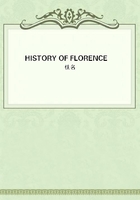
第147章
Jacopo had served many years with his father and brother, first under Duke Filippo, and afterward under the Milanese republic, so that by frequent intercourse with the citizens he had acquired many friends and universal popularity, which present circumstances tended to increase; for the prosperity and newly acquired power of the Sforzeschi had occasioned envy, while Jacopo's misfortunes and long absence had given rise to compassion and a great desire to see him.
These various feelings were displayed upon his arrival; for nearly all the nobility went to meet him; the streets through which he passed were filled with citizens, anxious to catch a glimpse of him, while shouts of "The Bracceschi! the Bracceschi!" resounded on all sides.
These honors accelerated his ruin; for the duke's apprehensions increased his desire of destroying him; and to effect this with the least possible suspicion, Jacopo's marriage with Drusiana, the duke's natural daughter, was now celebrated. The duke then arranged with Ferrando to take him into pay, with the title of captain of his forces, and give him 100,000 florins for his maintenance. After this agreement, Jacopo, accompanied by a ducal ambassador and his wife Drusiana, proceeded to Naples, where he was honorably and joyfully received, and for many days entertained with every kind of festivity;but having asked permission to go to Sulmona, where his forces were, the king invited him to a banquet in the castle, at the conclusion of which he and his son Francesco were imprisoned, and shortly afterward put to death. It was thus our Italian princes, fearing those virtues in others which they themselves did not possess, extirpated them; and hence the country became a prey to the efforts of those by whom it was not long afterward oppressed and ruined.
At this time, Pope Pius II. having settled the affairs of Romagna, and witnessing a universal peace, thought it a suitable opportunity to lead the Christians against the Turks, and adopted measures similar to those which his predecessors had used. All the princes promised assistance either in men or money; while Matthias, king of Hungary, and Charles, duke of Burgundy, intimated their intention of joining the enterprise in person, and were by the pope appointed leaders of the expedition. The pontiff was so full of expectation, that he left Rome and proceeded to Ancona, where it had been arranged that the whole army should be assembled, and the Venetians engaged to send ships thither to convey the forces to Sclavonia. Upon the arrival of the pope in that city, there was soon such a concourse of people, that in a few days all the provisions it contained, or that could be procured from the neighborhood, were consumed, and famine began to impend. Besides this, there was no money to provide those who were in want of it, nor arms to furnish such as were without them. Neither Matthias nor Charles made their appearance. The Venetians sent a captain with some galleys, but rather for ostentation and the sake of keeping their word, than for the purpose of conveying troops. During this position of affairs, the pope, being old and infirm, died, and the assembled troops returned to their homes. The death of the pontiff occurred in 1465, and Paul II. of Venetian origin, was chosen to succeed him; and that nearly all the principalities of Italy might change their rulers about the same period, in the following year Francesco Sforza, duke of Milan, also died, having occupied the dukedom sixteen years, and Galleazzo, his son, succeeded him.